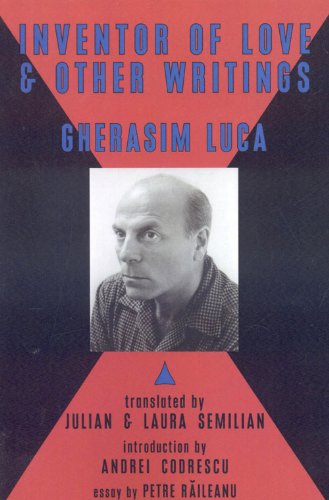

Most ebook files are in PDF format, so you can easily read them using various software such as Foxit Reader or directly on the Google Chrome browser.
Some ebook files are released by publishers in other formats such as .awz, .mobi, .epub, .fb2, etc. You may need to install specific software to read these formats on mobile/PC, such as Calibre.
Please read the tutorial at this link: https://ebookbell.com/faq
We offer FREE conversion to the popular formats you request; however, this may take some time. Therefore, right after payment, please email us, and we will try to provide the service as quickly as possible.
For some exceptional file formats or broken links (if any), please refrain from opening any disputes. Instead, email us first, and we will try to assist within a maximum of 6 hours.
EbookBell Team

0.0
0 reviewsGherasim Luca, surrealist poet, artist, and theorist, has finally been translated into English, with two volumes this year: The Passive Vampire and Inventor of Love & Other Writings. Known as well to allies of surrealism and related circles in his native Bucharest and in Paris––where he exiles himself some 40 years until his actual suicide in 1994––he has come to us, as it often happens, through the praise of another. In this case, it is Gilles Deleuze who finds in Luca, quite simply, “a great poet among the greatest.”
There is little question that Inventor of Love is a major accomplishment. Within it, Luca charts an act of poetic and theoretical revolt against the moral universe that typifies love as merely romantic or otherwise monogamous, and for procreation. It is, in no uncertain terms, Luca’s attempt to reinvent love, to free this voluptuous, anti-social passion from the fetters that deform it. There is risk here, of course. And for one such as Luca, whose clarity is matched by the fervor of his writing, the tensions evoked are consequential.
Luca composes Inventor of Love in the 1940s, during the dark days of fascist rule in Romania, still suffering under its terrorist arm, The Iron Guard. As a surrealist committed to the overthrow of class society, principally by subverting its psychological underpinnings, and as a Jew, his marginalization is acute. In order to survive, he secludes himself and endures a clandestine existence along with his women and his few friends who comprise the Romanian surrealist group.